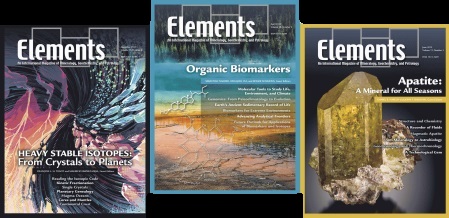Isotopes have a rich history as tracers of biogeochemical processes, but they are commonly interpreted using distillation models that lump multiple compounding effects, including advection, diffusion, and complex chemical transformations. Today, as our ability to measure small differences in relative mass continues to improve, a new generation of process-based models are being developed that explicitly track individual isotopes across an increasingly diverse range of environments. Advances in isotopic reactive transport models are now yielding new insight into fundamental questions across the Earth sciences, including the relationships between experiments and natural systems and the conditions under which isotopes record past environments.
This content is for Registered members only. To subscribe, please
join one of our participating societies or contact the Editorial Team.

